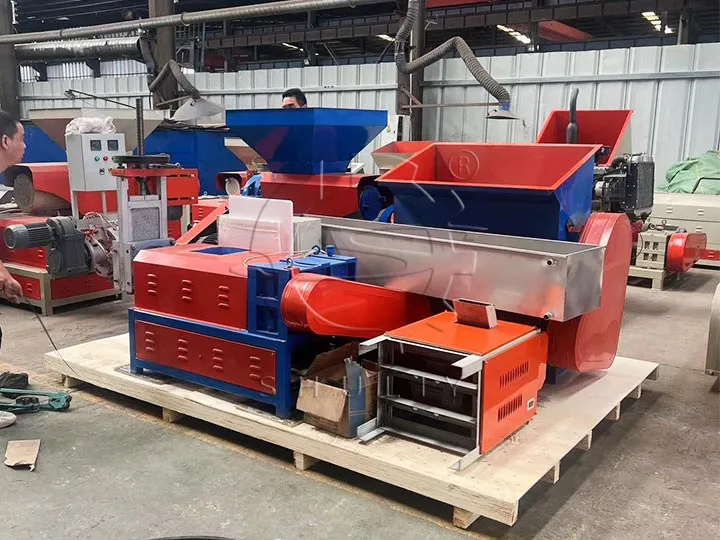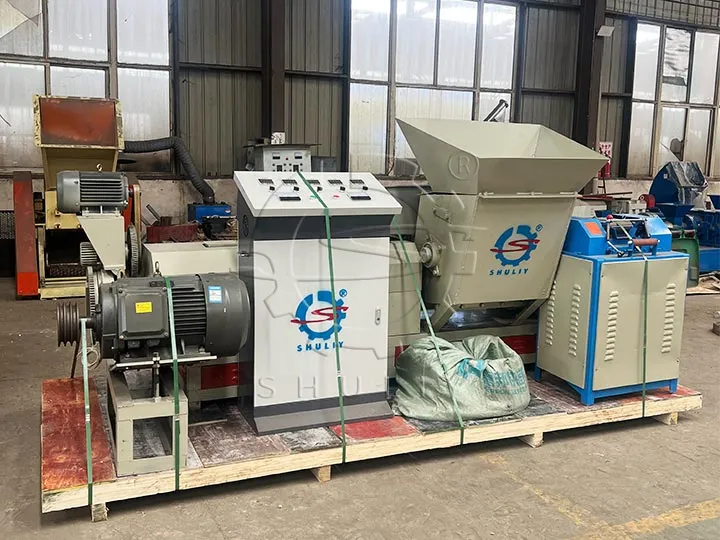
Suriname Customer Orders Foam Granulator for EPE And EPS Recycling
In recent years, the plastic recycling industry is developing rapidly, and more and more enterprises are concerned about…
In recent years, the plastic recycling industry is developing rapidly, and more and more enterprises are concerned about how to process foam waste efficiently. In order to improve the recycling rate of foam, the customer in Suriname ordered two foam granulators from our company, which are used for EPE and EPS foam recycling respectively.
Project Overview
The customer in Suriname is mainly engaged in the foam recycling business, and for the two different materials of EPE and EPS foam, the customer ordered the following equipment from us:
- Two foam granulators: for EPE and EPS materials, each with a capacity of 150-200kg/h;
- One styrofoam shredder: with a capacity of 200kg/h, it is specially designed to crush EPS foam into small pieces for subsequent granulation;
- Two cooling tanks and two pellet cutters: used to complete the cooling moulding and cutting of pellets to form a complete production line.


EPE and EPS Material Difference And Granulation Process
Although both EPE and EPS are foams, they are significantly different in material and processing.
EPE Foam (Expanded Polyethylene)
- The material is soft, with good toughness and elasticity.
- EPE does not need to be crushed in advance, can be directly into the foam granulator for melt extrusion granulation, the process is relatively simple.
EPS foam (Expanded Polystyrene)
- The material is brittle, low density and easy to break.
- EPS needs to be crushed into small pieces by EPS foam crusher first, and then into the foam granulator to melt and extrude into granules.
Effectiveness of Project Implementation
Through this project, the customer in Suriname can not only achieve effective recycling of EPE and EPS foam, but also produce high-quality recycled pellets. These pellets can be used to produce new packaging materials, insulation materials, etc., realising the recycling of resources and reducing environmental pollution.
In addition, the reasonable equipment configuration and targeted process design help the customer to reduce the production cost and improve the production efficiency, creating more economic benefits for the enterprise.
